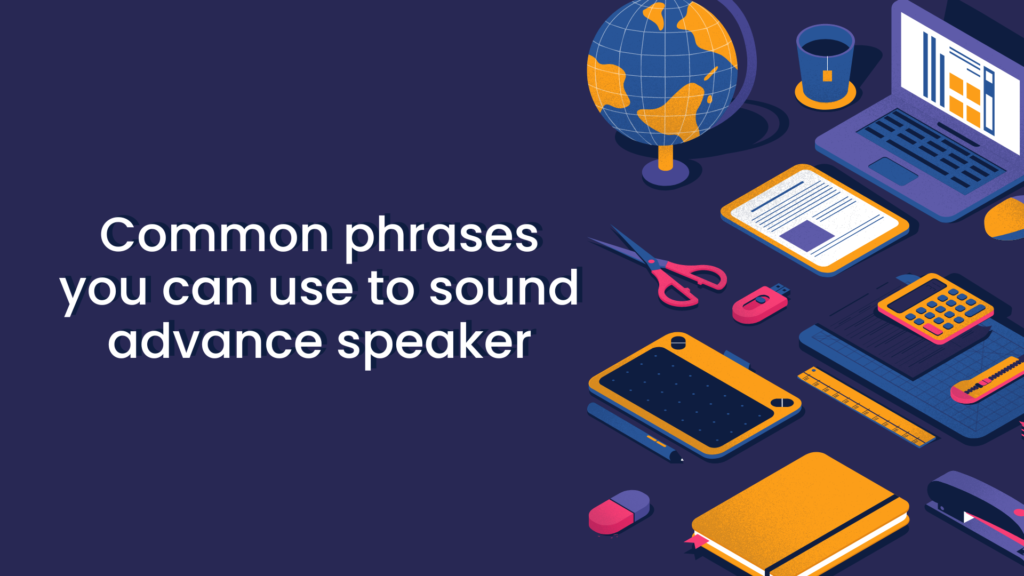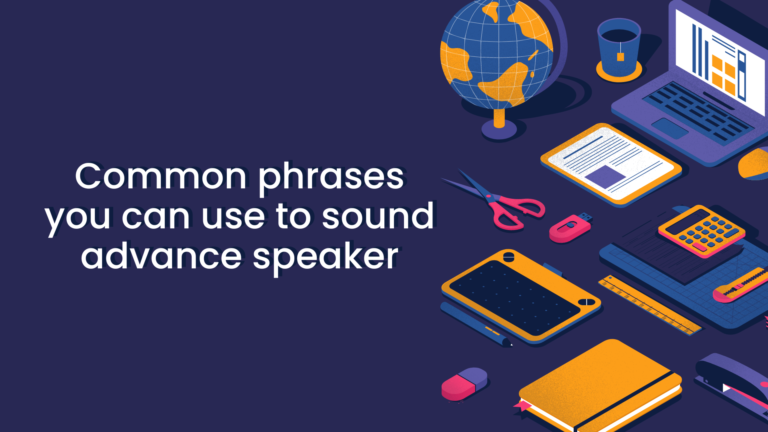Common phrases you can use to sound advance speaker
If you want to sound more intelligent, try using these phrases instead of common ones like “I’m not sure.” You’ll sound a lot more sophisticated and intelligent than your average Joe.
Section: “It’s complicated”
Section: “That’s a good point”
Let me see what I can do.
This phrase is a common and polite way to say, “I will try to do something.” It can be used in many situations and works well with both formal and informal settings.
To this end.
To this end, I would like to say that I am not a fan of the phrase “to this end.” It sounds so pompous and pretentious. But I do like this sentence: “The reason why people don’t understand how much work goes into making your favorite restaurants is because they don’t see any of it.” This is an example of how to use “to this end” properly—it’s important not only what you’re saying but also how you say it!
With the benefit of hindsight.
We could have done things differently.”
This phrase is a great way to show that you are a forward thinker, and also a good listener. If someone says something about their past experiences that makes them seem like an expert in life, use this phrase along with them!
In the interest of fairness.
Fairness is a value. It’s something we all agree on, and it’s important to everyone. The problem is that fairness has become a dirty word in recent years. We’ve heard it used as an excuse for some pretty awful things: “Well, she wasn’t being fair!” or “He got what he deserved.” But these phrases are not only unhelpful in conversations—they’re also untrue!
Fairness doesn’t mean that everyone should get equal treatment; it means treating people equally (or at least not hurting them). When someone says they’re going on strike because they think their employer isn’t being “fair,” they’re just expressing their anger at the situation without thinking about how their actions affect other people around them. In fact, if you want more information about how this concept works its magic across all walks of life—and why we should all care about fairness—check out our article on What Is Fair?
It all boils down to this.
This is the crux of the matter. This is what it’s all about.
As a rule, it’s a good idea to…
As a rule, it’s a good idea to use common English phrases in your speech. These include:
- I am sorry.
- Please forgive me.
- Thank you for your time and consideration of my request for assistance with this matter (or whatever).
It’s not rocket science – it’s quite simple, in fact.
It’s not as complicated as it sounds.
It’s not that difficult or complicated.
If you don’t mind my asking…
This is a polite request. It’s used to ask someone else for something, but it also has an interrogative meaning: “Do you mind if I ask?” The speaker doesn’t have any authority over the listener and wants to know what their reaction will be before proceeding with whatever he has planned. This phrase can be used in conversations or as parts of sentences when asking questions like “Will this make me look better?”
No questions asked.
The phrase no questions asked is a great way to sound like you know what you’re doing. It’s also a good way to save face, because if someone asks a question, it means they don’t think that whatever answer is given will be satisfactory.
For example: “No questions?” I said as I strode into the room holding my briefcase high and proud in one hand while I shook hands with the other person. You can see how this conversation went from being polite and friendly at first until it turned into an awkward silence where neither party really knew what else to say next (and this was before either of them even opened their mouths).
It’s all going according to plan.
If you’re looking for a way to sound sophisticated and knowledgeable, this is your answer. When someone tells you that something is going according to plan, they mean that everything is going according to the plan. It can be used in many different situations:
- “It’s all going according to plan.” This could mean anything from saying that your favorite TV show has been renewed for another season, or saying it means your project team has decided which product will be released next week (even though no one knows what exactly those products are yet).
- “That’s not according to plan.” This phrase means exactly what its name suggests: It means something isn’t happening as intended by either yourself or someone else involved with the process. And sometimes there may even be an element of sarcasm present when using this phrase!
I couldn’t agree with you more.
You might be familiar with the phrase, “I couldn’t agree more.” This is a positive phrase that means you agree with what the other person has said. You can use it to end a conversation or in an email, or even at the end of a business meeting.
If you want to sound more sophisticated than just agreeing with everything someone says (which is quite common), then this is one way to do it!
Conclusion: Small innovations and additions in your vocabulary can transform the way you speak and will make you sound more polished. If you are looking for professional help in improving your English, We conduct online english speaking classes
Conclusion
Small innovations and additions in your vocabulary can transform the way you speak and will make you sound more polished. If you are looking for professional help in improving your English, We conduct online english speaking classes


